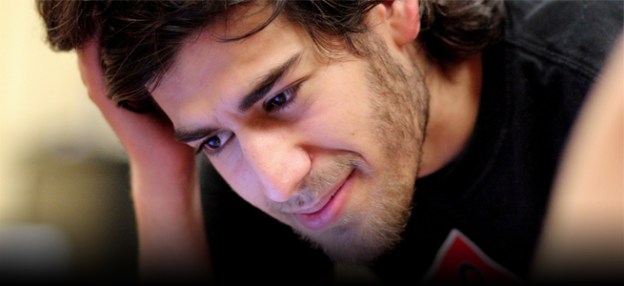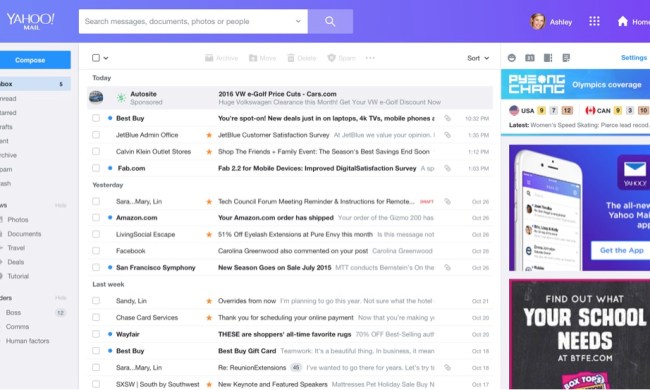
The untimely death of programming prodigy and Internet freedom pioneer Aaron Swartz has sent the tech world on a path of intense reflection. Why did this tragedy happen? What can be done to stop it from happening again? And, most of all, what lessons can we learn from Swartz, who took his life last Friday in his Brooklyn, New York, apartment?
Many brilliant people in the technology and Internet activism communities who knew the equally brilliant Swartz have led the way on this journey. But those of us not fortunate enough to have known him in life would be wise to join them in answering these questions. This is what I have learned so far.
Our computer crime laws must be changed immediately
Prior to his death, Swartz faced 13 felony counts of wire fraud and hacking (PDF), 11 of which stemmed from a law called the 1986 Computer Fraud and Abuse Act (CFAA). He could have faced up to 35 years in jail for what amounted to a violation of the Terms of Service of academic article repository JSTOR, from which Swartz downloaded 4.8 million articles. He accessed JSTOR from a computer closet at the Massachusetts Institute of Technology. While JSTOR refused to press charges after settling with Swartz, MIT supported legal action from the U.S. Department of Justice.
Prosecutors reportedly offered Swartz a deal that would have led to 6 months of prison time, if convicted, but Swartz’s family remains adamant that overzealous prosecution of what was, by many accounts, a victimless crime contributed heavily to Swartz’s suicide.
“Aaron’s death is not simply a personal tragedy. It is the product of a criminal justice system rife with intimidation and prosecutorial overreach,” the family’s statement read. It continued: “The US Attorney’s office pursued an exceptionally harsh array of charges, carrying potentially over 30 years in prison, to punish an alleged crime that had no victims. Meanwhile, unlike JSTOR, MIT refused to stand up for Aaron and its own community’s most cherished principles.”
The CFAA makes it illegal to access a computer “without authorization” or in a way that “exceeds authorized access.” Problem is, the definition of “authorization” is so broad that it allows prosecutors to hit accused people with the kinds of charges that plagued Swartz to his death.
This is a “profound” flaw in the CFAA, says Electronic Frontier Foundation Staff Attorney Marcia Hofmann. As is “[t]he penalty scheme for CFAA violations,” which “is harsh and disproportionate to the magnitude of offenses.” This needs to change.
On this front, there is both good and bad news. The good news is: Congresswoman Zoe Lofgren announced on Reddit – a website that Swartz helped create – plans to introduce “Aaron’s Law,” which would alter CFAA to explicitly forbid interpreting online Terms of Service violations as criminal. And other members of Congress have come out strong against the Justice Department’s actions in Swartz’s case, which means there is momentum in Washington to change this law.
The bad news is that Congress has already considered making changes to CFAA that would only make punishments under the law more severe – a proposition the U.S. Department of Justice fully supports (PDF).
We must look after one another
It is hard not to blame the U.S. attorneys who went after Swartz – they reportedly wanted to make an example of him, and further their careers in the process. It is equally difficult to absolve MIT, which pressed for Swartz’s prosecution despite the fact that JSTOR had made its peace with him long ago, and asked that he not be prosecuted.
Questioning the power of prosecutors is a valid response to Swartz’s death, but finding which outside sources to blame for suicide has extremely limited value.
“While loved ones often search for answers after someone they know takes their own life, the answers are never very satisfying,” writes Dr. John M. Grohol, editor in chief and founder of Psych Central. “In Aaron Swartz’s case, it appears that the jump to the cause and effect conclusion that his legal troubles led to his decision is overly simplistic.”
Grohol continues: “we know that in most cases of suicide what is nearly always present is a history of clinical depression. And at the time the person has taken their life, it is depression that is either not being treated at all, or being treated inadequately.”
In other words, we must all look out for one another, especially those who, like Swartz did, battle with depression. And that means furthering our understanding of this devastating affliction, taking it seriously when we spot the symptoms, and providing our loved-ones all the help and support they need, when they need it. This is no easy task to be sure, but it is one we should all strive to get right.
Be idealistic, and strive for greatness
It is clear from his life’s work, his writings, and his legacy that Swartz possessed a deep, emotional morality. He believed that right and wrong exists, and that it is our obligation to create forces of good in this world that combat the bad.
It was Swartz’s unending idealism – a kind of pure idealism that I have found impossible to possess in this age of hyper-relativism – that has stuck with me most as I learned about his life and his work. Swartz has made me question my own life priorities; he has made me strive to do better, smarter, more meaningful work. He has made me want to be great, even if such greatness is outside my reach.
And for me, this is the most important lesson to take from Swartz’s life and death: The world is not perfect, so it is up to us to make it better. Swartz was one of those rare breeds of people that lived by this maxim, and brought it to life with energy and genius that most of us can only dream to possess. And while his death is a true tragedy, a greater tragedy would be if we forget to even try.


